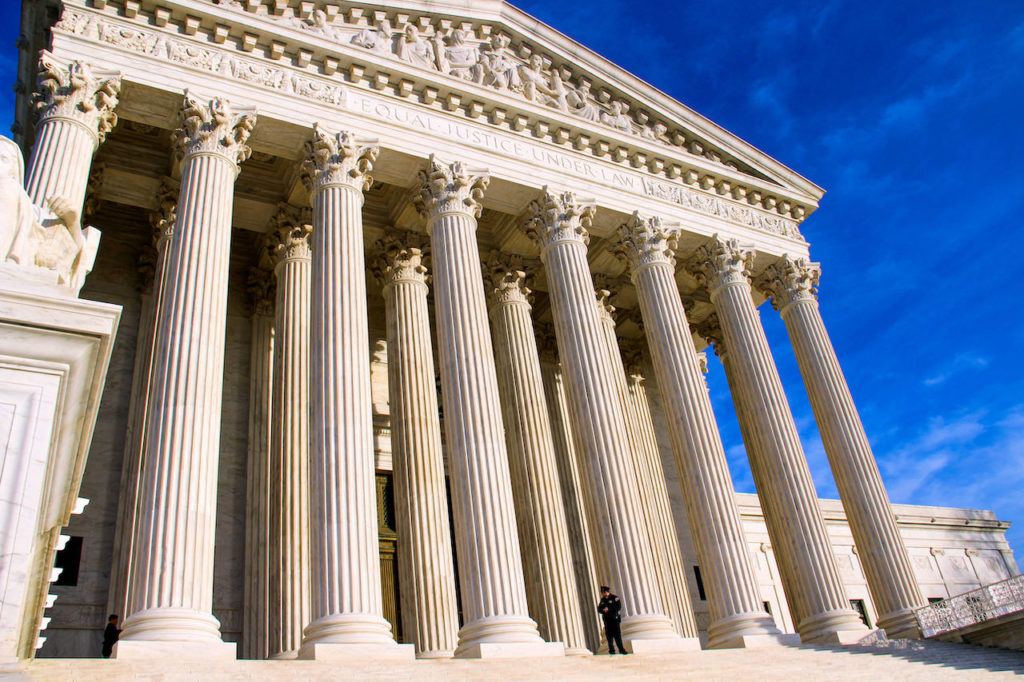
If the U.S. Supreme Court overturns longstanding abortion protections in place since 1973, a Tennessee law will automatically take effect and ban almost all abortions in the state — but not immediately.
POLITICO obtained a copy of a draft majority opinion authored by Justice Samuel Alito. A document leak is virtually unheard of for the Supreme Court and will likely destroy trust among the justices and staff. In the opinion, Alito writes, “it is time to heed the Constitution and return the issue of abortion to the people’s elected representatives.”
WPLN’s daily show This Is Nashville talked on Tuesday to health care reporter Blake Farmer. Listen to the full episode here.
What would happen if Roe v. Wade is overturned?
The decision was not expected to be released for another month or two, and POLITICO warns that the decision is not final. But if the high court overturns Roe v. Wade, Tennessee would join more than two dozen states expected to outlaw abortion or return the bans already on the books. Tennessee has what’s known as a “trigger ban,” which was passed in 2019 as the “Human Life Protection Act.”
The 2019 law says that if Roe v. Wade is overturned “in whole or in part,” then the law becomes effective 30 days later. A provision was added to the final version of the law requiring the Tennessee Attorney General, currently Republican Herbert Slatery, to make a decision about whether the Supreme Court’s decision indeed triggers the law.
Why is there a 30-day waiting period for the “trigger ban” to take effect?
Attorney Paul Linton, who helped draft Tennessee’s law, says the 30-day period was intended for legal challenges to occur — and he expects resistance.
“Someone’s going to go to court and say, well, the attorney general says this has taken place, but I don’t think it has and I want a court to decide that. That would certainly be an appropriate thing for a court to decide.”
Among the states with similar trigger laws to Tennessee, not all have this waiting period before going into effect, and some have shorter waiting periods.
If the law does take effect, what would happen then?
If enacted, the ban would be near-total. Among the exceptions are if the pregnancy endangers the life of the mother, though the language specifically rules out any exception for mental health — even in instances of threatened self-harm.
There are no exception for rape or incest, which were often included in previous attempts to ban abortions. There are also no allowance for abortions even in the very first few weeks of pregnancy.
The person receiving an illegal abortion would not be subject to prosecution. But anyone performing the procedure — including prescribing medication — could be charged with a Class C felony, including prison time and a fine of up to $10,000.
More: Recapping the abortion bills in front of the Tennessee legislature with WPLN’s Blake Farmer
How many pregnancies are currently terminated each year in Tennessee?
The state started tracking these numbers closely in 2008, and since then, the number of abortions has dropped by more than a third. Abortion opponents actually take credit for this, due to their restrictions like waiting periods and other things they’ve put on abortion rules in Tennessee.
According to the latest data we have, from 2019, there were about 8,700 terminated pregnancies in Tennessee that year. People who get abortions tend to be in their twenties and unmarried, and the rates are higher among Black and Hispanic women.
How are abortion providers responding to this?
Some states where abortion will remain legal have been actively preparing to help make medication more accessible in states where abortion will be illegal.
This year, Tennessee tightened its own ban on telemedicine abortions, though Will Brewer, legal counsel for Tennessee Right to Life, says it’s unclear whether prosecutors in the state could go after providers elsewhere who prescribe medication and send it to patients in Tennessee.
“I think the battleground, so to speak, will shift,” Brewer said prior to the publishing of the leaked opinion. “I think this will be an issue that will continue to be prevalent.”
This Is Nashville plans to follow up on this issue in the coming weeks. And we want to hear from you about your questions on abortion access in Tennessee. Leave us a voice message at ThisIsNashville.org.
This story was last updated on Tuesday, May 3, at 3:30 p.m.


